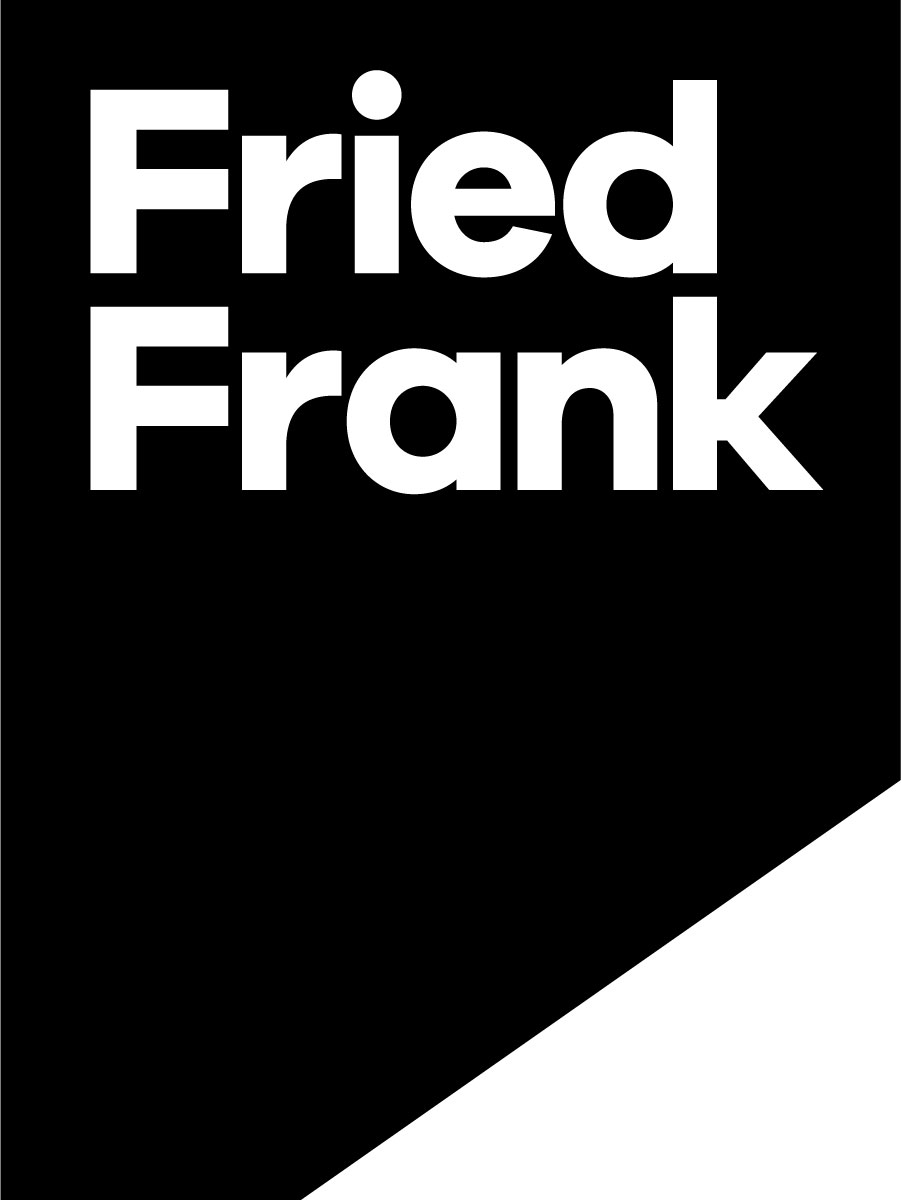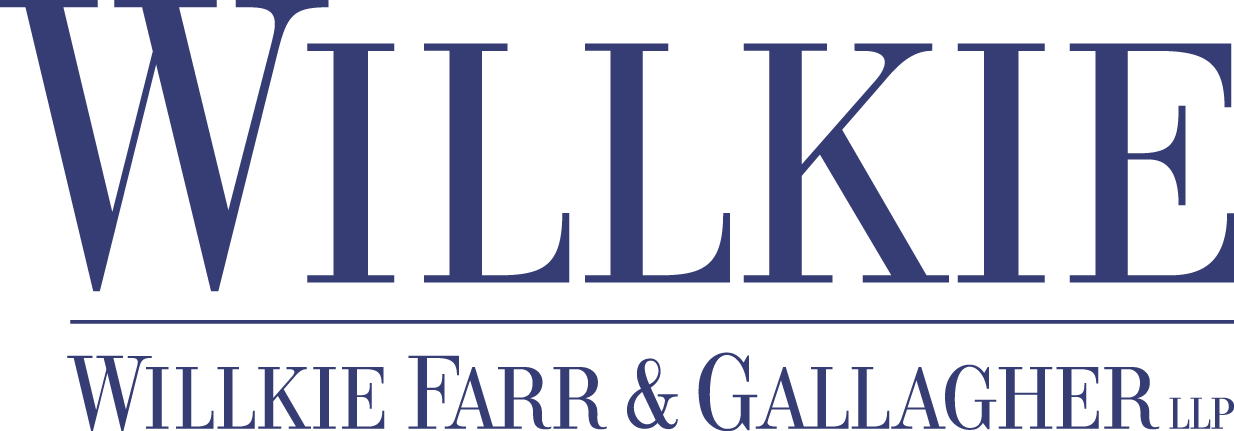How large companies can make shareholders happy, The Age.com, December 22, 2005.
Indeed, the chief proponent of shareholder empowerment, Harvard law professor Lucian Bebchuk, has conceded as much. In an article published in the Harvard Law Review earlier this year, Bebchuk commented that: “I do not view increasing shareholder power as an end in and of itself. Rather, effective corporate governance, which enhances shareholder and firm value, is the objective underlying my analysis.”
SEC Aims to Clarify Executive Pay, Los Angeles Times, December 16, 2005.
Lucian Bebchuk, a Harvard professor who studies executive pay, said retirement plans were also poorly disclosed. He determined this year that the median plan offered to CEOs of Fortune 500 companies was worth $15 million. The cost of these plans was largely not reflected in cash compensation tables, he said.
Joining A Board: The Porcupine Approach, The Corporate Counselor, November 2005.
Check out the compensation committee. I think we’ve seen enough high-profile examples to know that compensation is a hot-button issue. Professor Bebchuk of Harvard Law School has put us on notice with his book, “Pay Without Performance.” You must ask if the compensation committee has the kind of freedom you think it should have. Does the committee have the right to go out and hire compensation experts? Does it look at the cost across the entire corporation to find the true cost of an executive and not simply his or her income? How much influence does the CEO have on compensation? Is it a corporation that historically has been a pay-for-play corporation when you hit 350, you’re rewarded, and when you hit 245, you’re not rewarded?
Battle for Board Would be Costly and Carry Risk, Financial Times, November 30, 2005.
Lucian Bebchuk, director of Harvard Law School’s corporate governance programme, said the most likely outcome of Mr Icahn’s planned proxy contest was a settlement with Time Warner’s 14-member board.
Cox Embarks on First Governance Initiative, Financial Times, November 28, 2005.
Lucian Bebchuk, director of Harvard law school’s corporate governance programme, found in a research paper that between 1996 and 2004, only 108 public companies faced contested board elections that were designed to oust sitting directors. Only 17 companies with market capitalisations of more than $200m faced such elections, and in just two cases were the rival slates of candidates triumphant.
Too Many Turkeys, Economist, November 24, 2005.
So is there a cure? Certainly, fuller disclosure would help, argues Lucian Bebchuk of Harvard Law School and co-author of a recent book, “Pay Without Performance: The Unfulfilled Promise of Executive Compensation”. If there were proper disclosure of forms of executive pay such as pensions, supplementary pensions and deferred compensation, then it would be easier for shareholders to see whether chief executives are being rewarded for genuinely good work.
Transforming the Myth of Democratic Shareholder Power into a Reality, Socialfunds.com, October 27, 2005.
A new paper by Harvard Professor Lucian Bebchuk debunks the myth of shareholder power to replace directors, and recommends reforms that could jumpstart the stalled SEC proxy access rule.
Corporate America and Congress: Has Sarbanes-Oxley Restored Investor Confidence? Federal News Service, US News & World Report, October 5, 2005.
MS. ELLSWORTH: I just have to jump in for one second, which is I do think I agree that it should be set by independent directors. I do think that there has to be a strong process. But I think all of us on the panel agree that current disclosure — you look like a very bright person, but if I gave you an annual report and a 10K, I can promise you, you go through it until Friday and still not figure out exactly what that CEO is making nine times out of 10. And I think what we’ve seen is some interesting studies this year alone. One from, for example, professors of Harvard, Bebchuk and the like, who are talking about pension packages.
‘Stealth’ Pensions Hide Huge CEO Payouts, MSNBC, MSN Money, September 28, 2005.
After all, most companies already have a single number that represents the value of pension obligations for each top executive. Those companies that don’t could compute such numbers at little cost, says Harvard Law School professor Lucian Bebchuk, author of a book on executive pay called “Pay Without Performance: The Unfulfilled Promise of Executive Compensation.”
Biogen Details Executive Stock Awards in Wake of Layoff Plans, Boston Globe, September 17, 2005.
“You need to ask why these people need something extra at this time,” said Lucian Bebchuk, director of the Program on Corporate Governance at Harvard Law School. “Why was what they were getting before not sufficient?”
When the Boss Makes Big Money, Plastics News, August 29, 2005.
Other critics, like Harvard professor Lucian Bebchuk, argue that compensation problems stem from boards that are not independent enough from the executives they oversee. The problem, as they see it, is a corporate power structure that favors the CEO.
Figuring Execs’ Pensions Takes Advanced Math, St. Louis Post-Dispatch, August 14, 2005.
In a paper published in March, Lucian Bebchuk and Robert Jackson of the Harvard Law School studied a sample of large-company CEOs who left their jobs during 2003 and the first half of 2004. They waded through the opaque disclosure documents and attempted to put a value on this benefit.
Op-Ed by Lucian Bebchuk: The Disney Verdict and the Protection of Investors, Financial Times, August 12, 2005
The Disney Verdict and the Protection of Investors, Financial Times, August 11, 2005.
By Lucian Bebchuk
The Delaware Chancery Court issued its long-awaited and important opinion in the Disney litigation earlier this week, absolving the defendant directors of any liability. The decision makes it clear that investors cannot look to judicially imposed liability for protection from disastrous compensation decisions and other governance failures. What the decision leaves unclear, however, is where shareholders can look to for such protection under existing corporate arrangements.
NYSE Faces Criticism for Planned Governance Policies, Newsday.com, July 27, 2005.
These proposed policies appear designed “to give shareholders very little say and to give the board the decisive say in the company’s corporate-governance arrangements,” said Lucian Bebchuk, a professor at Harvard Law School and director of its corporate-governance program. A study co-authored by Bebchuk found that such takeover defenses tend to erode companies’ market value, in part because they “make the board less accountable” to shareholders.
Millions Richer, Ex-CEO Departs Delta Payroll, Atlanta Journal Constitution, July 27, 2005.
Company boards often sweeten exit packages “even when [CEOs] are pushed out,” Bebchuk said. A hefty exit deal can lower some directors’ opposition to booting an executive, Bebchuk said. “They are doing it not with their own money, but the shareholders’ money,” he said.
You Deserve a Refund for Fat CEO Pay, Christian Science Monitor, July the Governance Front,Corporate Control Alert, July 12, 2005.
“The agenda’s champions are well known: entities such as the California Public Employees’ Retirement System and State of Wisconsin Investment Board; various unions including the AFL-CIO; academics, among them Charles Elson of the University of Delaware and Lucian Bebchuk of Harvard Law School; gadflies such as Robert Monks and Nell Minow; and in a more cautious way, self-appointed gurus of good governance such as Ira Millstein of Weil, Gotshal& Manges LLP.”
Money Talks, Corporate Counsel, July 2005.
As talking points, we asked panelists to consider some recent proposals for fixing executive compensation. These included the increased disclosure requirements that the Securities and Exchange Commission is currently considering, the heightened role for shareholders advocated by Lucian Bebchuk and Jesse Fried in their book, Pay Without Performance, and the reforms suggested to the New York Stock Exchange, Inc., by Winston & Strawn’s Dan Webb in his investigation of the compensation paid to former NYSE CEO Richard Grasso.
To Rein in CEOs’ Pay, Why Not Consider Outsourcing the Post? Wall Street Journal, July 19, 2005.
“But when you look at the fine print of his contract, you see that a chunk of that annual bonus is virtually guaranteed,” says Lucian Bebchuk, a Harvard law professor and co-author of “Pay Without Performance.” “The main justification for escalating CEO pay levels is the need to generate powerful incentives — but in reality the links between pay and performance aren’t strong,” he adds. Indeed, a big portion of executive compensation, including rich guaranteed retirement payments and “stealth” benefits such as free lifetime use of corporate jets, are completely divorced from performance.
Morgan Stanely’s Missteps with Executive Pay Packages, Wall Street Journal, July 13, 2005.
According to a study completed this spring by Harvard Law School professors Lucian Bebchuk and Robert Jackson, the median pension plan for a departing CEO of a Standard & Poor’s 500 company in 2003 and 2004 was $15 million. It’s normal to offer merely one year of severance, pay experts say.
AFSCME Employees Pensions Plan Recommends Board Reform at Morgan Stanley, AFSCME Press Release, June 29, 2005.
Currently, Morgan Stanley uses a plurality voting standard for director elections, which means that the nominee who receives the most votes will be elected. Nearly all corporate director elections, including the last five at Morgan Stanley, are uncontested; in other words, there is only one candidate for each open seat. (Harvard Law School Professor Lucian Bebchuk has estimated that there were only about 80 contested elections at public companies from 1996 through 2002.) In uncontested situations, a plurality voting standard ensures that a nominee will be elected even if holders of a majority of shares voting exercise their right to withhold support from the nominee on the proxy card. Indeed, under plurality voting, a single share could elect a nominee.
Rich Rewards for the Regions Corporate Elite, Washington Post, June 27, 2005.
Lucian A. Bebchuk, a professor of law and economics at Harvard Law School who has studied the effect of corporate governance and executive compensation on shareholder value for more than a decade, said the executive numbers in the Washington area mirror national trends.
Tyco’s former CEO and CFO are Convicted of Stealing More than $600 Million From the Company,National Public Radio, June 18, 2005.
SOLOMON: It’s questionable what kind of impact the verdict will have on the larger issues of corporate governance and executive pay. Lucian Bebchuk, a Harvard business professor and co-author of the book, “Pay Without Performance,” says the Tyco case will do little to inject some control over the massive pay of top executives.
Professor LUCIAN BEBCHUK (Harvard Business School): Good corporate governance cannot be produced by the blind instrument of the criminal law. And the problem we have had with executive pay is not that executives took something that was not approved but rather that boards and directors approved pay packages that have not been in the interest of shareholders.
SOLOMON: Instead of high-profile criminal cases, Bebchuk suggests that shareholders have more power to vote in company boards and get more information about executive pay.
Speech by SEC Staff, Chester S. Spatt: Governance, the Board and Compensation, SEC, June 9, 2005.
An important aspect of governance that deserves much attention is the role of the board of directors and the extent to which a board mitigates existing incentive problems vis–vis the senior management and to what extent it creates incentive problems of its own. The role of the board is fundamental, but perhaps not adequately emphasized, at least in the academic literature.2 The board hires the Chief Executive Officer (CEO) and is responsible for managing succession. Yet there is typically a lot of interaction between the board and the CEO, whether or not the CEO serves as Chairman as well. The CEO often has tried to influence the composition of the board; an interesting empirical analysis of this is in Shivdasani and Yermack (1999). This discussion emphasizes that “conflicts of interest” may be crucial. An interesting academic analysis of the importance of conflict of interest in the determination of CEO compensation is given by the widely publicized book by Bebchuk and Fried (2004).3 The board sets the compensation for senior management, including the CEO, by a Compensation Committee. “Benchmarking” is often used, though the approach does not seem designed to produce a lot of effective information. Interestingly, the board is self-perpetuating (with new members selected by a Nominating Committee) and the auditor reports (in part) to the board through the Audit Committee.
Money Can’t Buy You . . . Performance, The Age, June 10, 2005.
In Pay Without Performance: The Unfulfilled Promise of Executive Compensation (Harvard University Press, 2004), prominent US law professors Lucian Bebchuk and Jesse Fried point out that in the US between 1991 and 2003 the average large-company CEO’s total remuneration increased from 140 times the pay of an average worker to 500 times average pay. Similarly, in Australia between 1992 and 2002 CEO remuneration increased from about 22 times average weekly earnings to 74 times average earnings.
War on Section 404, The Daily Deal, June 6, 2005.
Executives at small-cap companies, those yelling the loudest about Sarbanes-Oxley, earn a larger percentage of the company’s earnings than CEOs of companies with medium and large stock market capitalizations. According to a soon-to-be released study by Lucian Bebchuk, director of the corporate governance program at Harvard Law School, the top five executives at small-cap companies received in earnings more than 25% of the profits of the companies between 2001 and 2003. “Executive compensation is much more of a big deal for small companies,” Bebchuk says.
What are Mergers Good For?, New York Times, June 5, 2005.
Lucian Bebchuk, a professor of law, economics and finance and director of the program on corporate governance at Harvard Law School, recently wrote a book with Jesse Fried on executive compensation titled “Pay Without Performance.” In it, he argues that when acquisitions enter the mix, top executives often get away with larger amounts of “gratuitous payment” than might otherwise be possible. One reason for this, he says, is that the gains typically made by the shareholders of a target company may lull them into complacency about outsize payments to top executives. In other words, since everyone is getting a little richer in the transaction, the fact that a couple of executives are getting a lot richer is less bothersome.
Breaking Step, Corporate Counsel, June 2005.
What exactly do insiders contribute? “Having executives in addition to the CEO is beneficial for two reasons,” says Lucian Bebchuk, director of the Program on Corporate Governance at Harvard Law School. “First, getting to know other executives and interacting with them over a long period of time is potentially beneficial for future succession decisions that the directors will have to make. Second, hearing about the state of the company from more than one person could improve the quality of the picture directors have.”
New Front Opens in Shareholder Demands for Comp Disclosure, Board Alert, June 2005.
“Once the pension values are included, it turns out that pay is much less linked to performance than investors realize,” says Lucian Bebchuk, professor at Harvard Law School and co-author of the study with Robert Jackson. Harvard Law School Professor Lucian A. Bebchuk has taken aim again – this time at pensions for CEOs of major U.S. corporations. Last fall, Professor Bebchuk, together with Jesse M. Fried, a professor of law at the University of California, published “Pay Without Performance” (Harvard University Press), a book that is critical of the lack of linkage between top management pay and performance.
Now, Professor Bebchuk, together with Robert J. Jackson Jr., an Olin Fellow in Law and Economics at Harvard Law School, has published a report entitled “Putting Executive Pensions on the Radar Screen.” (This will be referred to as “the report.”) The report is likely to provoke significant attention and discussion. And deservedly so. It discloses that, for many CEOs, the portion of their pay represented by pensions is larger than many have realized.
Do CEOs Earn What They’re Paid? Pioneer Press, May 22, 2005.
Law school professors Lucian Bebchuk and Jesse Fried see it differently. Last year, they skewered pay practices for top executives in their book, “Pay Without Performance.”
They argue that the system is inherently flawed because existing pay arrangements generally don’t link pay tightly with performance and even directors classified as independent are often co-opted by chief executives.
Fumo Earns $700,000 from Bank Firm; Could get Millions from Sale, Associated Press, May 15, 2005.
The board doubled Fumo’s compensation to $709,800 in 2004, although he had stepped down as its chief executive the year before, remaining only as chairman. The average pay for chairman of comparable banks is $30,000, the newspaper said. “It’s hard to conceive how this could serve the stockholders,” said Harvard law professor Lucian A. Bebchuk, who has written a book on executive pay.
More Nickels on Top, Star Tribune, May 15, 2005.
In their 2004 book, “Pay Without Performance: The Unfulfilled Promise of Executive Compensation,” Lucian Bebchuk and Jesse Fried report that in 1991 the average large-company CEO received about 140 times the pay of an average worker. By 2003, the ratio had enlarged to about 500 to 1.
Retiring is a Time for Hefty Rewards, The Baltimore Sun, May 15, 2005.
“If anything, you would think that executives are in a better position to bear the risks of investment performance than regular employees that have less of a cushion,” said Lucian A. Bebchuk, director of Harvard’s program on corporate governance and co-author of the pension study.
CEO Pay is Still on Steroids, The Providence Journal, May 10, 2005.
Executive pay now takes more than double the bite out of company earnings that it did a decade ago, according to a recent study by Lucian Bebchuk, a Harvard professor of law, economics, and finance, and Yaniv Grinstein, of Cornell University’s School of Management. Looking at data for thousands of publicly traded companies, Bebchuk and Grinstein found that pay for the top-five company executives rose from 4.8 percent of aggregate net company income during 1993-95 to 10.3 percent of aggregate net income during 2001-03.
Retire Secretive Policy, Atlanta Journal-Constitution, May 10, 2005.
Perhaps new research on the overlooked cost to shareholders of executive retirement packages will motivate investors to demand a better accounting and the Securities and Exchange Commission to add some urgency to its review of compensation reporting rules. Lucian Bebchuk and Robert Jackson Jr. of Harvard Law School determined, from a sampling of the biggest public companies in the United States, that pension plans have the effect of ballooning executive compensation by an average of more than 48 percent.
Raines Joins AOL Founder’s Venture, Washington Post, May 10, 2005.
Federal regulators ordered the company to restate earnings it reported for 2000 to 2003, which could cause a reduction in previously stated earnings of as much as $12 billion. The Securities and Exchange Commission and the U.S. attorney for the District of Columbia are investigating Fannie Mae. Raines received a retirement package potentially worth $25 million for him and his wife, according to a recent study by the Program on Corporate Governance at Harvard Law School.
Executive Pay: Over the Top?, ZENIT News Agency, May 7, 2005.
Bebchuk and Fried observe that the traditional view that considers an executive’s salary as being set in a bargaining process between a board that is looking for the best deal for shareholders, and the executive who is seeking the best deal for himself, is mistaken. In fact, the data analyzed by the authors show that managerial power has played a key role in determining pay arrangements.
Why CEOs Haven’t Earned Their Pay, Time Magazine, May 2005.
Of course CEOs rake in the dough. But a study says the beefier paychecks can’t be explained by increases in their companies’ market cap or anything else. In other words, the bosses didn’t earn those hikes. The study–done by two professors, one from Harvard law, the other from Cornell’s business school–found that among S&P 500 companies, the compensation of CEOs soared 146%, on average, from 1993 to 2003.
Morgan Stanley Board Takes a Pass on Special-Mtg Issue, Wall Street Journal, May 2, 2005.
That decision dismantles one of the most potent anti-takeover devices in the corporate toolbox, said Lucian Bebchuk, director of the Harvard Law School’s Program on Corporate Governance.
“Essentially in the ranking of shareholder-unfriendly counterproductive provisions, the inability of shareholders to act between annual meetings falls significantly behind the ability to remove the whole board at the annual meeting,” he said. “Having a staggered board is more pernicious and problematic then precluding action by either written consent or calling a special meeting.”
Textron Shareholders Convert, Boston Globe, April 27, 2005.
The ICCR is a 34-year-old coalition of 275 faith-based institutional investors with combined portfolios of about $110 billion. The organization seeks to integrate social values into corporate and investor decisions, according to a statement.
Unclear is whether the vote will actually lead to changes at Textron, because shareholder resolutions are not legally binding, according to Lucian Arye Bebchuk, director of the corporategovernment program at Harvard Law School.
Fighting over Fairness Opinions, Corporate Control Alert, April 27, 2005.
Such skepticism is not new. In a 1989 paper, Marcel Kahan, now a professor of corporate law at the New York University School of Law, and Lucian Bebchuk of Harvard Law School suggested that judges “exercise substantial caution in assessing and giving weight to fairness opinions.” Kahan recently said that he thought most investors have also long understood the basic conflict underlying fairness opinions.
The New Economic Warriors, Wall Street Journal, April 13, 2005.
From 1993 to 2003, the average compensation of CEOs of the Standard & Poor’s 500 companies rose 146 percent after inflation, report Lucian Bebchuk of Harvard Law School and Yaniv Grinstein of Cornell University.
A Perk Takes Off, Wall Street Journal, April 11, 2005.
One reason some people take issue with such arrangements is that the executive often gets to use the plane just for being available — not necessarily for actually providing a service, says Lucian Bebchuk, a Harvard law professor and co-author of the book “Pay Without Performance.” “The new CEO often doesn’t like to get the advice of the old CEO,” says Mr. Bebchuk.
Who’s Winning?, Wall Street Journal, April 11, 2005.
Analysts predict that pay-related shareholder resolutions will continue to spread. But many remain skeptical about how much more impact they will produce. “Shareholder action, and sometimes shareholder outrage, do provide some constraints on pay,” says Lucian Bebchuk, a professor at Harvard Law School.
CEOs Return to Days of Runaway Pay, Perks, St. Petersburg Times, April 6, 2005.
All these mammoth paychecks have fallen under the spotlight of Harvard Law School professor Lucian A. Bebchuk, author of Pay Without Performance. The new book says CEOs increasingly get pay hikes without regard to corporate success or failure.
Studies Fault Current Systems for Executive Compensation, SEC Today, April 5, 2005.
A paper on the growth of U.S. executive pay, written by Harvard Law professor Lucian Bebchuk and Cornell University professor Yaniv Grinstein, highlights the importance of the ongoing debate over executive compensation. The paper found that executive compensation between 1993 and 2003 grew at a level beyond that which could be explained by changes in firm size, performance and industry classification. Bebchuk also released a paper co-written with University of California law professor Jesse Fried on the flawed compensation arrangements at Fannie Mae between 2000-2004. The Fannie Mae paper calls for a reform of the executive pay and corporate governance systems.
Street Fight, Barrons Online, April 4, 2005.
Such generosity is by no means an anomaly, we’re pleased to say. A recent study by Lucian Bebchuk of Harvard Law and Yaniv Grinstein of Cornell confirmed that corporate boards are far from stingy in compensating their companies’ brass. Further, the study, carried out under the aegis of the John M. Olin Center for Law, Economics and Business at Harvard Law School, disclosed that, in rewarding the captains of commerce and industry for their labors, the boards do not place inordinate reliance on such chancy considerations as the growth in a company’s earnings.
The New Executive Bonanza: Retirement, New York Times, April 3, 2005.
“The fact is, we don’t have good economic reasons for channeling dollars for this form,” said Lucian A. Bebchuk, a Harvard Law School professor and co-author with Jesse Fried of a recent book, “Pay Without Performance.” “There is a clear benefit in terms of making the amount of pay less transparent.”
Op-Ed by Lucian Bebchuk: What Corporate-Governance Reforms are Still Necessary?, Optimize Magazine, April, 2005
The Pay at the Top is Through the Roof: CEO Rewards not Reality-Based, Professors Claim,Bloomberg News, March 31, 2005.
Lucian Bebchuk of Harvard Law School and Yaniv Grinstein of Cornell University’s Johnson School of Management found that the top five executives at public companies received $ 92 billion in total compensation from 2001 to 2003, amounting to 10.3 percent of their firms’ total net income. The ratio was more than double the 4.8 percent from 1993 to 1995, the authors said.
Study of Fannie Mae Cites ‘Perverse’ Executive-Pay Policy, Washington Post, March 31, 2005.
Lucian A. Bebchuk of Harvard Law School and Jesse M. Fried of the University of California at Berkeley School of Law, in a paper distributed by Harvard yesterday, said Fannie Mae rewarded Raines, Howard and other senior executives in such a way that “weakened and distorted” their incentives to create a strong company…. Bebchuk and Fried specifically criticized Fannie Mae’s practice of awarding cash bonuses based on growth in earnings per share, saying it provided incentives for senior managers to manipulate accounting in Fannie Mae’s huge portfolio of mortgage investments to reach earnings targets.
For Gillette CEO, it was a $29m Year, Boston Globe, March 31, 2005.
Over the past decade, salaries and bonus packages for chief executives have more than doubled when taking into consideration economic variables such as inflation, said Lucian Bebchuk, Harvard Law School professor and co-author of “Pay Without Performance: The Unfulfilled Promise of Executive Compensation.”
Special Report: CEO Pay ‘Business as Usual’, USA Today, March 30, 2005.
“Large pay packages continue to touch a raw nerve,” says Harvard professor Lucian Bebchuk, author of 2004’s Pay Without Performance: The Unfulfilled Promise of Executive Compensation. “As long as boards are unaccountable, Corporate America won’t change and fundamental problems will remain.”
Out of Control?, Across The Board, March/April, 2005.
What’s remarkable about Pay Without Performance, and which may give it more impact than other books about executive pay, is that it is not an angry screed but, rather, a studied, scholarly analysis whose understated language gives it a cumulative effect that is overpowering. Moreover, it was not written by any of the “usual suspects” — the critics who have a bone to pick with corporate America and its excesses, which makes Bebchuk and Fried’s book more credible and more damning.
Curbing Executive Entitlements, St. Petersburg Times, March 24, 2005.
According to the Post, salaries stayed strong even as corporate profits dropped in the late 1990s. “It’s not something that can be explained by the economic fundamentals of a company,” Lucian Bebchuk, a Harvard Law professor and director of the school’s program on corporate governance, told the newspaper.
Executives Cash In, Regardless of Performance, Washington Post, March 22, 2005.
“Even though the escalation of pay has often been justified as necessary, when you look at the details, that is not the case, because much of the pay is not all that sensitive to performance,” said Harvard Law School professor Lucian A. Bebchuk, author of the new book “Pay Without Performance.”
Captians of Piracy, New York Times, March 21, 2005.
Indeed, C.E.O. pay increased most rapidly at companies with weak governance and few shareholder rights, according to a study this year by Lucian Bebchuk of Harvard and Yaniv Grinstein of Cornell. That study also found that public companies devoted about 10 percent of their profits to compensating their top five executives, up from 6 percent in the mid-1990’s. That’s a hijacking of corporate wealth by top managers.
Calpers Majority Vote Push Could Propel Issue Forward, Dow Jones Newswires, March 15, 2005.
Some governance experts, however, don’t even think majority voting goes far enough. It’s “a mild but important step toward improving the arrangement governing corporate elections,” said Harvard law and economics professor Lucian Bebchuk. “While majority voting is a useful step in the right direction, it isn’t sufficient. More needs to be done to turn corporate elections from a myth into a reality. To this end, shareholders should be provided with access to the ballot and staggered boards should be dismantled.”
Verdict Could be a Bad Sign for Other Executives on Trial, Dow Jones Newswires, March 15, 2005.
“The protection of investors will depend little on whether Ebbers, Lay, or Scrushy will go to jail and for how long,” said Lucian Bebchuk, director of the Harvard Law School’s Program on Corporate Governance. “It will depend on whether or not we adopt the necessary structural reforms to make boards accountable and eliminate flaws in compensation arrangements.”
CEO Bonuses Rose 46.4% At 100 Big Firms in 2004, Wall Street Journal, February 25, 2005.
“This is not a good trend because the bonus traditionally has not been well-linked to performance,” says Lucian Bebchuk, a Harvard law professor and co-author of the recent book, “Pay Without Performance.” Corporate boards’ compensation committees have wide discretion to set and change management bonus programs.
Binding Resolutions and Coordination Circumvent Structural Limitations of Shareowner Action,SocialFunds.com, February 18, 2005.
Harvard Law and Economics Professor Lucian Bebchuk has written a paper to be published this year in the Harvard Law Review entitled The Case for Increasing Shareowner Power that supports the principle of AFSCME’s stance. “My analysis indicates that the considerable weakness of shareholders in US companies is not a necessary consequence of the disperr executives have gleaned from deferred-c, February 9, 2005… “There is the possibility the pay package provides perverse incentives for a sale that is not necessarily for the right price and not at the right time for shareholders,” said Lucian Bebchuk, professor and director of the Program on Corporate Governance at Harvard Law School.
Give Us More Money, Accounting Today, February 7, 2005.
For some time, it has become clearer and clearer to us at New Products that we make too little money, and that chief executives make too much. Harvard Law School professor Lucian Bebchuk and Berkeley law professor Jesse Fried make this clear (at least the part about executive pay) in their book, Pay without Performance: The Unfulfilled Promise of Executive Compensation, which delves into the widespread and systemic governance flaws that have allowed execs undue influence in the setting of their own pay, and the ways in which corporate boards’ role as shareholders’ agents has been subverted. Their proposed solutions revolve around fixing the misincentives involved in so many pay packages, and removing the barriers that insulate directors from their constituents.
Reining Back the Company Gravy Train, Management Today, February 7, 2005.
Lucian A. Bebchuk, professor at Harvard Law School, and Yaniv Grinstein of Cornell Business School, find that the pay of the top five executives at a number of large firms rose much faster than did company profit or stock market value since the early 1990s. That pay now accounts for nearly 10% of total corporate profit compared with 5.7% in the early 1990s.
The Compensation Conundrum, Tech Central Station, February 3, 2005.
In their new book Pay Without Performance (Cambridge, MA: Harvard University Press, 2004. Pp. xii, 278. $24.95), law professors Lucian Bebchuk and Jesse Fried contend that actors and sports stars bargain at arms’-length with their employers, while managers essentially set their own compensation. As a result, they claim, even though managers are under a fiduciary duty to maximize shareholder wealth, executive compensation arrangements often fail to provide executives with proper incentives to do so and may even cause executive and shareholder interests to diverge.
Figures compiled by Lucian Bebchuk, a Harvard University law professor, show that 68 per cent of non-financial corporations that went public between 1996 and 2000 incorporated in Delaware. Virtually every company that incorporates outside its home state now chooses Delaware.
Outfoxing Sarbanes-Oxley, Slate, January 24, 2005.
“It’s just another way to provide executives with pay that isn’t related to performance,” says Lucian Bebchuk, a professor at Harvard Law School and co-author of the new book Pay Without Performance. “Most of these are basically cousins to the old loans that companies used to make before Sarbanes Oxley. They’re lump sum transfers that may or may not be justified.”
What’s $13 Million Among Friends?, New York Times, January 17, 2005.
Professor Lucian Bebchuk writes: Ten former directors of Enron have agreed to pay $13 million from their own pockets to settle a class action suit stemming from Enron’s collapse in 2001, which wiped out some $60 billion in shareholder value. Because directors almost never have to pay even a penny in such suits, the Enron settlement – announced just days after several former WorldCom directors agreed to a similar deal – was widely viewed as a significant development that could discourage potential directors from serving on corporate boards.
Mayday? Payday! Hit the Silk!, New York Times, January 8, 2005.
In their book, “Pay Without Performance” (Harvard University Press), Professor Fried and his co-author, Lucian Bebchuk, a Harvard Law School professor, contend that retirement pay is just the most recent hiding place for excessive compensation and that executive contracts are intentionally drafted to keep things quiet. “Compensation plan designers have an incentive to obscure or make more opaque the total value of an executive’s compensation package,” they wrote, “as well as to disguise the extent to which the form of compensation deviates from what best serves shareholders’ interests.”























